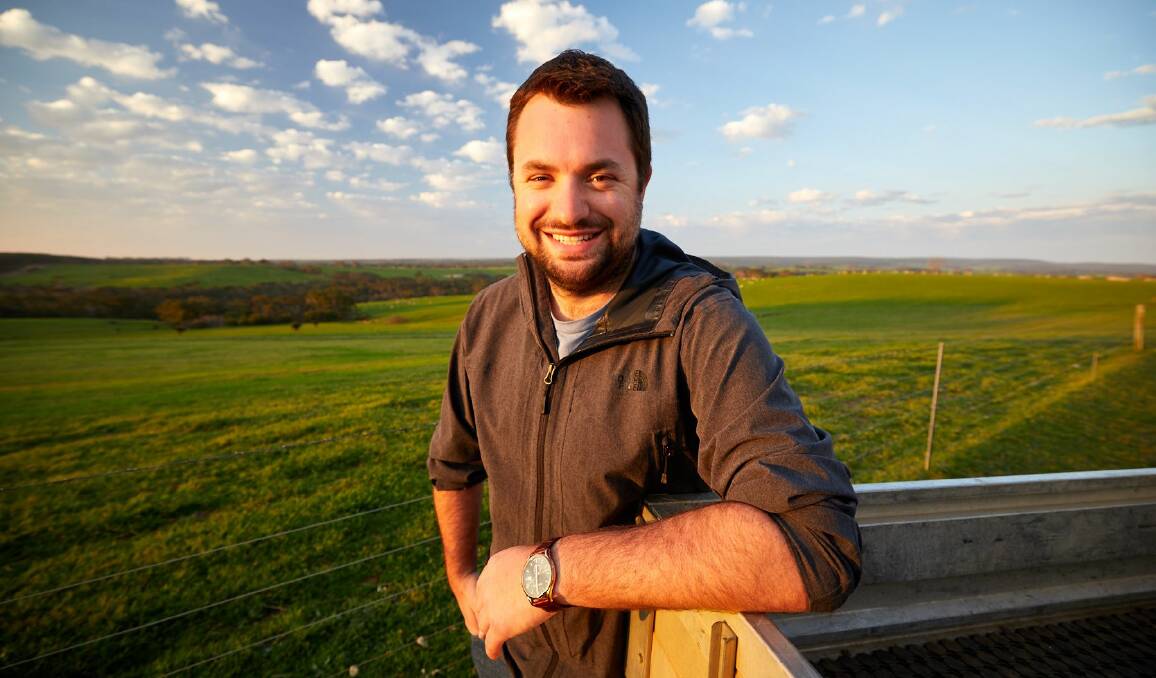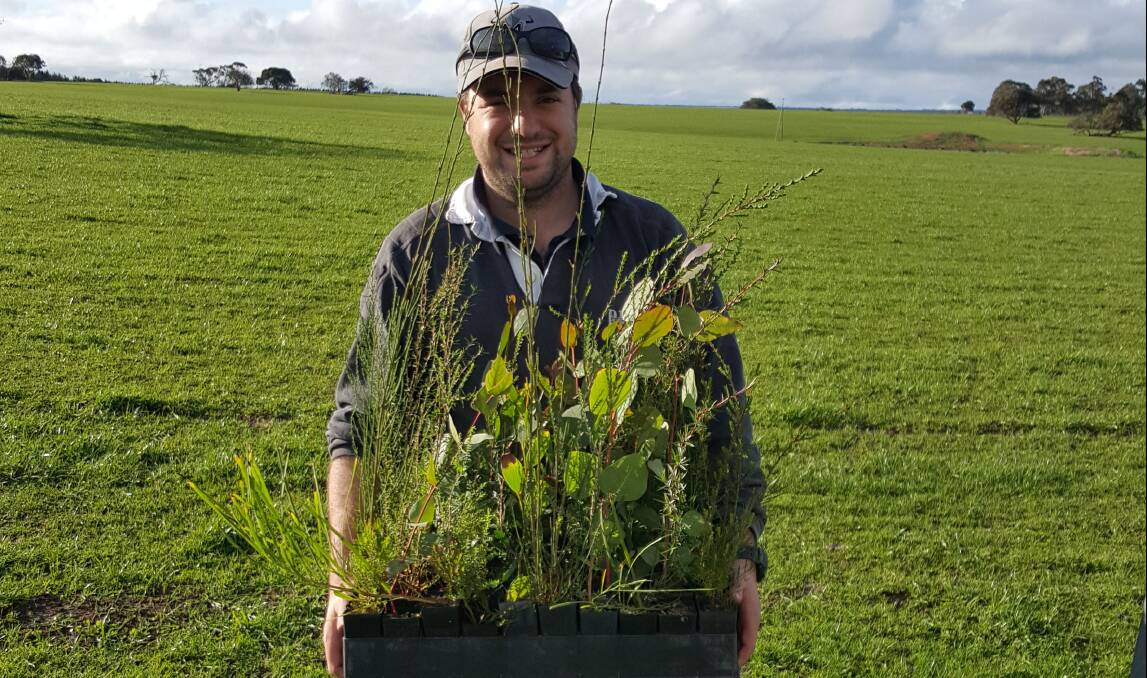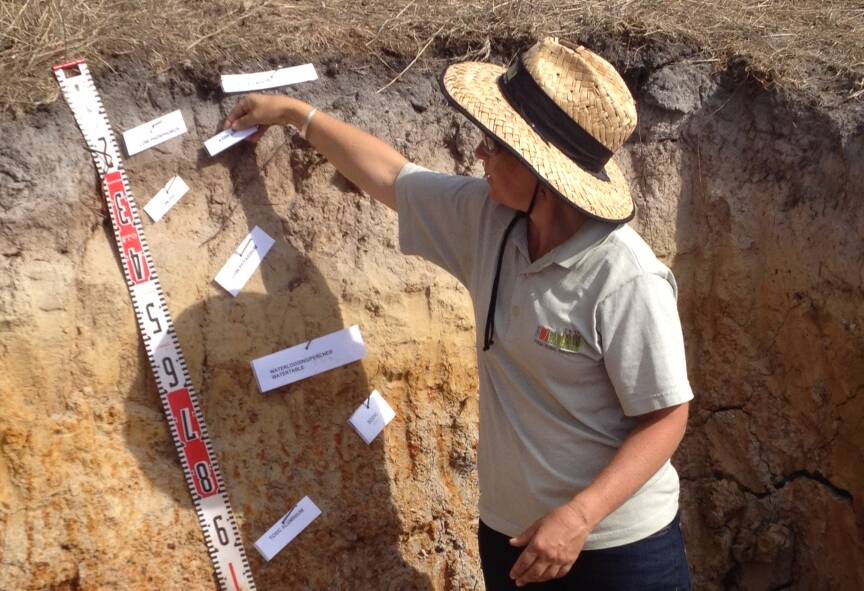A lifetime of landcare: Agriculture Kangaroo Island's road to farming success

This is branded content for Landcare Australia.
Agriculture Kangaroo Island's Jamie Heinrich remembers participating in landcare as a child, but he never imagined he'd be Chair of an organisation now in the running for one of Landcare Australia's most prestigious national awards.
"We were very honoured to win South Australia's 2021 Australian Government Landcare Farming Award, and now to be up for the 2022 National award is just fantastic," said Jamie.
"It's a great recognition of the more than three decades of landcare work that both Agriculture Kangaroo Island and our wider farming community has done."
Launched over 25 years ago, Agriculture Kangaroo Island (AgKI) is the Island's peak industry body boasting more than 120 local members ranging from wool and red meat producers to croppers and vintners.
It's an organisation for farmers by farmers that puts sustainability and productivity first, ensures all its members are able to access best-practice information, and provides an on-ground connection to promote local uptake of landcare and government projects.
With Kangaroo Island still recovering from the damage done by the Black Summer bushfires - the largest in the island's recorded history - the work of AgKI has never been more important.
"We've had to work overtime on our recovery efforts. Even two years later they are still ongoing," said Jamie.
"We lost nearly half the island to the fires, including over 400 structures, 60,000 livestock and countless native animals. A great deal of the landcare work the community had done over the past 30 years was also undone."

AgKI's main focus after the fires was to support the island's tight-knit community to come together to rebuild.
While they worked as a conduit for incoming government support, community members began restoring lost shelter belts of native vegetation and replaced the thousands of kilometres of boundary fences that were lost in the blaze.
By providing shelter for livestock, creating habitat for native animals and helping to mitigate erosion, the shelter belts proved to be the keystone to Kangaroo Island's fire recovery.
"Erosion was one of the community's biggest concerns after the fires. There was a lot of loose, nutrient rich ash and sediment that was flowing into our waterways because of a lack of vegetation, and with reduced shade we were seeing a rise in water temperatures and algae growth," said Jamie.
"Local landholders were asking for help and we worked together with our partners to deliver."
The fires also resulted in a boom in pest species, putting both native animals and livestock at risk.
To address this additional threat, AgKI worked with local Department of Primary Industries and Regions and Kangaroo Island Landscape Board staff to control the numbers of feral pigs, cats and weeds, as well as improve Kangaroo Island's biosecurity measures long term.
As bushfire recovery efforts continue, AgKI has also been advancing their long-term focus on soil health by continuing to provide an independent soil testing service for all landholders on Kangaroo Island, as well as engaging in local trial work to determine appropriate fertiliser and lime application rates, methods of incorporation, and yield responses.

Its soil pit field days have also been an incredible success, increasing local farmers understanding and awareness of soil constraints and how to manage them.
"Our soil projects are just one of the ways we support farmers on the island to improve farming practices and make Kangaroo Island's agriculture industry more sustainable," said Jamie.
"Practice improvement is one of the four pillars of our organisation. Each year we run highly successful workshops focusing on 'Managing the Season'. These workshops cover everything from confinement feeding and maintaining ground cover, to managing farm finances and mental health."
Jamie puts AgKI's ongoing success down to the grassroots nature of the organisation and the island's long history of commitment to landcare.
Even with so much on their plate already their work doesn't look to be slowing down any time soon. Jamie said that with additional funding to begin multiple new projects they'll be delivering even more to their members in 2022.
The winner of the 2022 Australian Government National Landcare Farming Award will be announced at the 2022 National Landcare Awards Gala Dinner in Sydney, on Wednesday, 24 August 2022.
This prestigious event will be hosted during the 2022 National Landcare Conference taking place from August 23-25 at the International Convention Centre Darling Harbour in Sydney.
Tickets for the 2022 National Landcare Conference and National Landcare Awards gala dinner will go on sale early June. Free registration is available for online delegates. For more information visit www.landcareaustralia.org.au Find out more about AgKI at www.agki.com.au
This is branded content for Landcare Australia.


